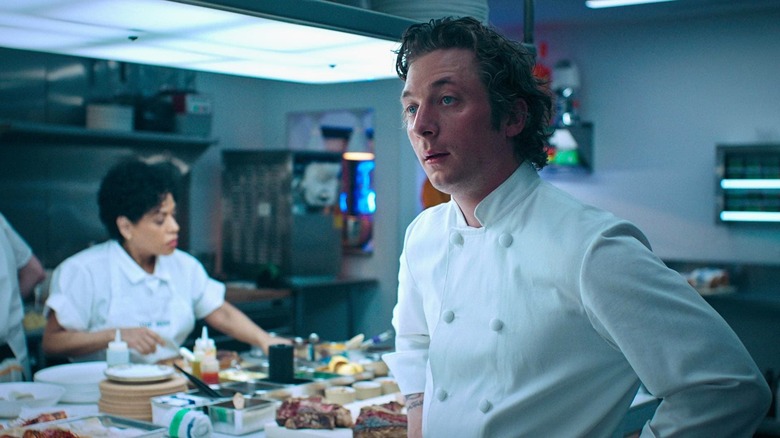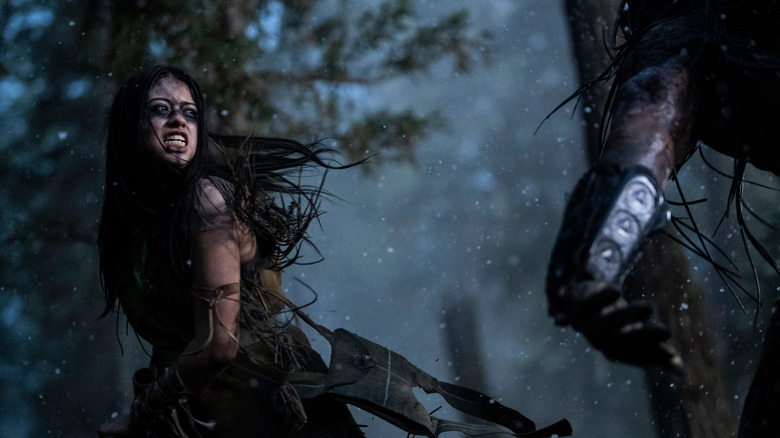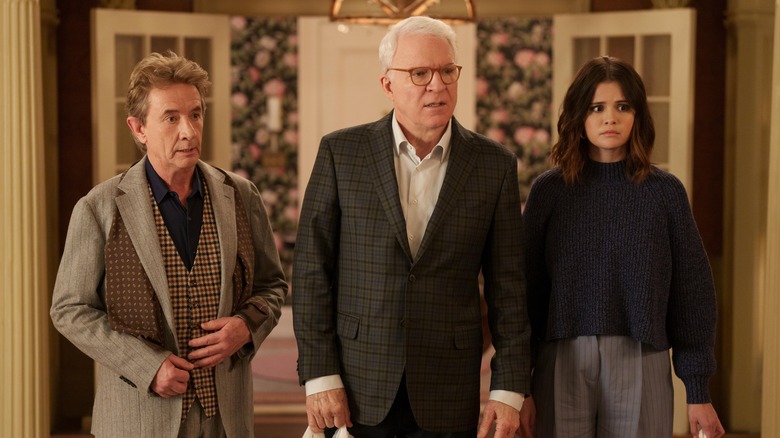Disney Will Now Be The Sole Owner Of Hulu – Here's What This Means To You
It's official: Disney is going to be the sole owner of Hulu. Disney has essentially been fully in control of the streaming service for years now, but there was an outstanding agreement between the Mouse House and NBCUniversal looming. NBCU still owned one-third of the streamer and, per an agreement reached by the companies in 2019, that ownership was going to need to be settled. It has now indeed been settled, with Disney agreeing to pay NBCU for their share.
Disney announced the deal in a press release, with the company saying it expects to pay approximately $8.61 billion for the remaining stake of Hulu. This represents one-third of the $27.5 billion floor value for Hulu that was set when the companies entered into their agreement in 2019. There is an appraisal process that could change the value, in which case Disney might have to pay more, but either way, the result will be the same: NBCUniversal's only streaming service will be Peacock, and Disney will fully own and operate Hulu from here on out. It's an important moment in the streaming wars that could end up changing things for viewers down the line. More on that in a moment.
"The acquisition of Comcast's stake in Hulu at fair market value will further Disney's streaming objectives," Disney said in the press release. That's, admittedly, not the most enthusiastic statement. When the deal was first made in 2019, streaming looked like the unrivaled future in media. In 2023, reality has set in and it's clear that for all of these various streaming services to reach profitability, things are going to need to change. Hence, all of the recent price increases. Plus, having to fork over nearly $9 billion to own Hulu outright doesn't get Disney any closer to profitability in the short term.
What is going to change for Hulu?
For subscribers, little is likely to change in the immediate future. Disney has pretty much been Hulu's main supplier of movies and TV shows for some time now, as NBCU's parent company Comcast terminated its deal with Hulu last year so that it could keep all of its shows in-house on Peacock. But this is a big reason why Disney made the $71 billion purchase of Fox in 2019. Getting that gigantic library of movies and TV shows ensured that they would have a leg up in the streaming game. Having the FX networks has been a great help in the Hulu department, for example.
The viewer experience may stay mostly the same in the short term, but on a longer timeline, the big question is whether or not Disney is going to seek to consolidate its streaming business. Right now, Disney+ and Hulu exist as separate entities under the same corporate umbrella — at least in the United States. Most Hulu movies and TV shows are already on Disney+ in Canada under the Star brand. Disney is also getting ready to launch a "one app experience" for Disney+ and Hulu this year. That could be a signal that the idea is to eventually merge the services. That would mark a big change for subscribers.
From Disney's perspective, there are pros and cons to keeping them apart or merging them. As it stands, the company has multiple revenue streams from two different services. As a combined offering, Disney could theoretically get more from each subscriber and have a bit more of a cohesive branded experience. But there are areas where the culture clash shows. It's difficult to imagine a movie like "Hellraiser" on the ostensibly family-friendly Disney+, for example. That aside, this is the area where viewers might feel the most change, depending on how it shakes out.
Disney is all-in on streaming now
Broadly speaking, this demonstrates Disney's all-in commitment to streaming as the future. Sure, one imagines CEO Bob Iger might re-evaluate that Hulu deal through 2023 eyes, as that $8.6 billion (give or take) now looms very large — particularly given that the company is around $47 billion in debt, largely due to the Fox deal from 2019. Be that as it may, cord-cutting is only going to increase. Whatever revenue comes from cable and traditional TV is only going to decline. No, streaming is not all that profitable yet, but that's where the future lies. It's an adapt-or-die situation. Iger wants to adapt.
"We're in a very interesting transition period, but one I think is inevitably heading towards streaming," Iger said earlier this year. The executive also acknowledged that streaming is currently "not delivering the kind of profitability or bottom-line results that the linear business delivered for us all over a few decades." The full acquisition of Hulu is a future-focused move. In the meantime, Disney needs to find a way to pay for it, as adding that much more to the debt pile isn't an attractive option.
To that end, it was recently reported by Bloomberg that Disney held preliminary talks about possibly selling ABC to Nexstar. It just so happens Nexstar is the same company that bought The CW last year. They are a regional TV giant, and having a crown jewel of traditional TV like ABC would fit their business model better than it might fit Disney's. While nothing has been firmed up, a sale of ABC and other traditional TV holdings could help Disney pay for its streaming future. This is certainly more speculative, but this Hulu purchase could result in Disney's withdrawal from traditional TV.
Disney might look to bail on traditional TV
If that does come to pass, it would be a big change for viewers. Hulu itself might not change a ton, but the Disney empire that we've come to know may indeed be in the midst of a makeover. There is going to be a messy period of transition, but Iger knows that cable and traditional TV aren't going to grow — it's a sinking ship. Yes, the company is going to have a tough time making up the losses if they don't have revenue streams from TV channels like ABC, but that revenue is going to shrink every year from here on out. Streaming is poised for growth. You've got to invest in the avenue that has a future.
This Hulu deal forces us to look at the larger picture. Streaming must be the future and, as a result, it must become profitable. Not just for Disney, but other companies such as Warner Bros. Discovery as well. That's why Max and other services have been purging movies and TV shows to avoid paying royalties. Periods of transition can be messy. Now that Disney fully controls Hulu, more messiness of that sort could be coming.
Unfortunately, the end result of all of this is that the cost is going to be passed to consumers. Disney will, in all likelihood, continue to raise prices for Disney+ and Hulu, or the possible/probable eventual combined offering. Other streamers will do the same. Streaming will not be the cost-saver we all hoped it would be. It will be a build-your-own cable bundle with the convenience of on-demand and without the savings.
This is the future, and Disney's full purchase of Hulu is an important signifier that the future is here.



